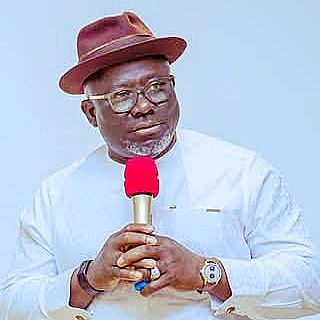In a move poised to reshape Delta State’s economic and governance landscape, Governor Sheriff Oborevwori on Thursday signed into law seven critical bills, including the much-anticipated Delta State Electricity Power Sector Bill, 2024.
The governor hailed the electricity law as a “game changer” for the state’s industrial ambitions, but policy observers warn that the true test lies in its execution.
The new legislation provides a framework for the state to independently regulate and attract private investment into power generation, transmission, and distribution, an area long plagued by federal bottlenecks and unreliable supply.
“We have now provided the legal framework to unlock a plethora of investment opportunities,” Oborevwori said during the signing ceremony. “You can’t do any investment without power. Power is very key.”
The Electricity Bill, championed under the administration’s MORE Agenda, signals a shift toward decentralization and energy autonomy.
However, analysts stress that the law must be backed by clear regulatory guidelines, transparency in licensing, and a strategy to prevent political interference, a notorious pitfall in Nigeria’s energy reforms.
Also signed into law were the following bills:
Delta State Physical and Regional Planning Bill, 2024
Delta State Film and Video Censor’s Board Bill, 2024
Registration and Regulation of Private Veterinary Clinics (Amendment) Law, 2024
Child Rights (Amendment) Bill, 2024
Delta State Pet Control and Responsible Ownership Bill, 2024
Delta State College of Health Technology, Ovrode Bill, 2024
Among the most socially impactful is the Child Rights (Amendment) Bill, 2024, which prohibits the use of children as domestic help outside of their immediate family circle and establishes a formal Adoption Service Department within the Ministry of Women Affairs.
“This amendment strengthens protections for our children, who are our future,” the governor stated. Still, child rights advocates are urging that the law be coupled with strong enforcement mechanisms and public sensitization to ensure it does not remain symbolic.
Governor Oborevwori lauded the Delta State House of Assembly for its “diligent and people-oriented legislation,” and reiterated his administration’s commitment to implementation.
“These laws will protect our vulnerable populations, promote sustainable development, and attract investment,” he said. “But our work is far from over.”
Speaking earlier, House Speaker Rt. Hon. Emomotimi Guwor noted that public hearings and memoranda shaped the bills before passage, emphasizing that citizens’ voices were incorporated into the legislative process.
He also commended the governor for visible infrastructural projects across the state.
While Thursday’s legislative milestone has drawn praise in some quarters, many believe the real challenge lies ahead. Without robust monitoring, citizen oversight, and efficient administrative execution, even the most visionary laws risk becoming mere political trophies.
Deltans now wait to see whether these bills, especially the electricity sector reform, will deliver on their promise or join a growing list of under-implemented legislation in Nigeria’s democratic history.

















